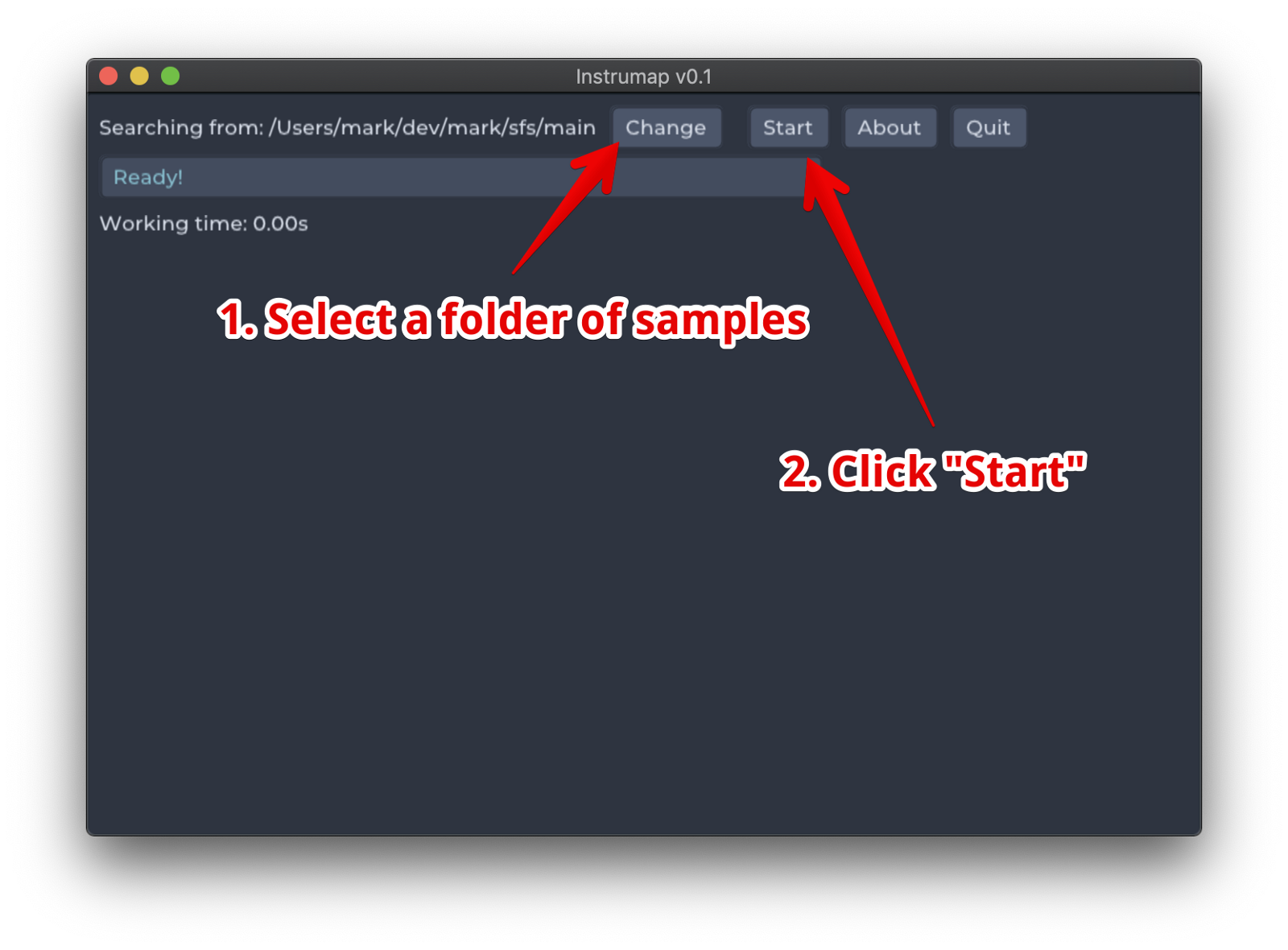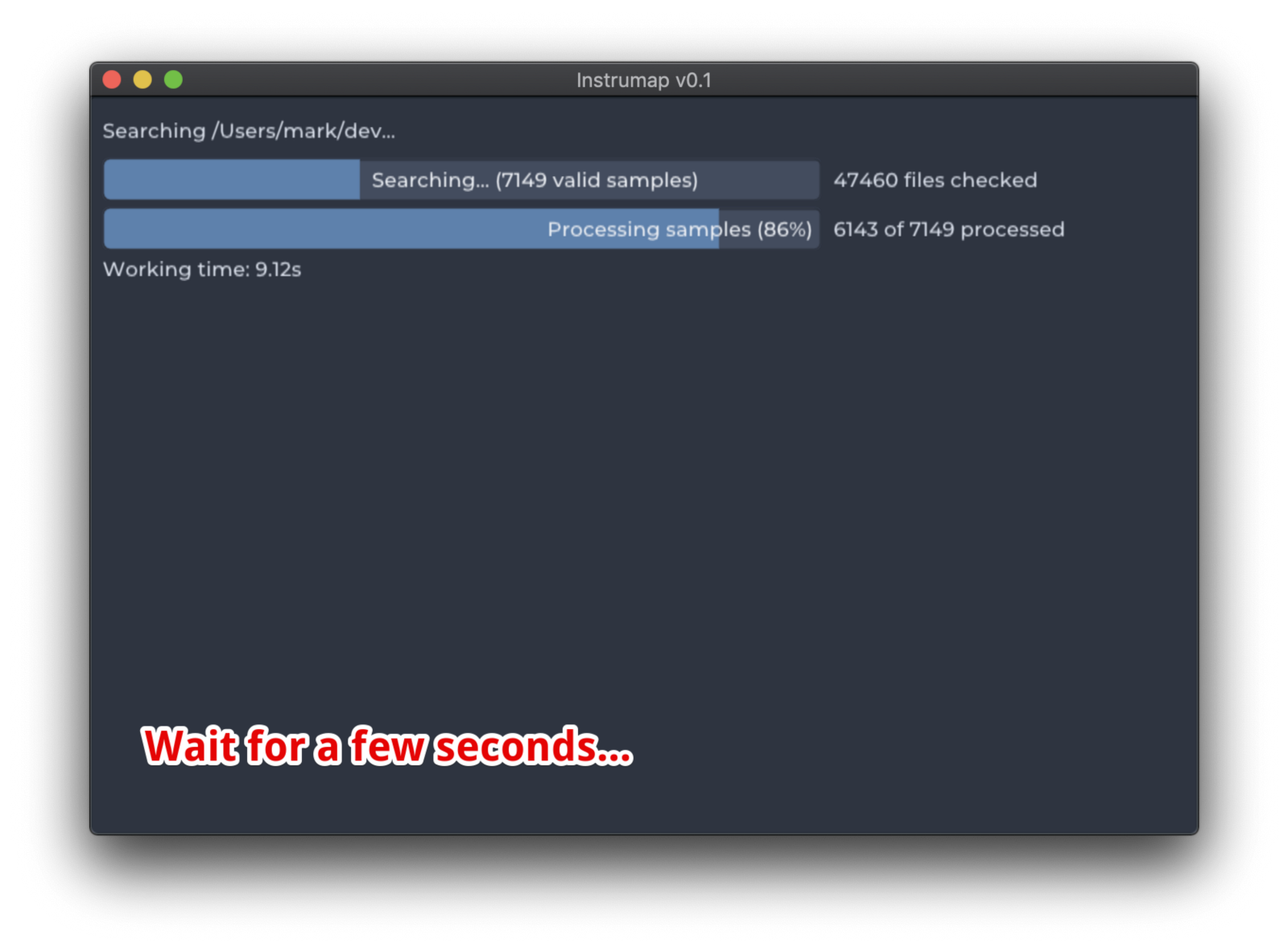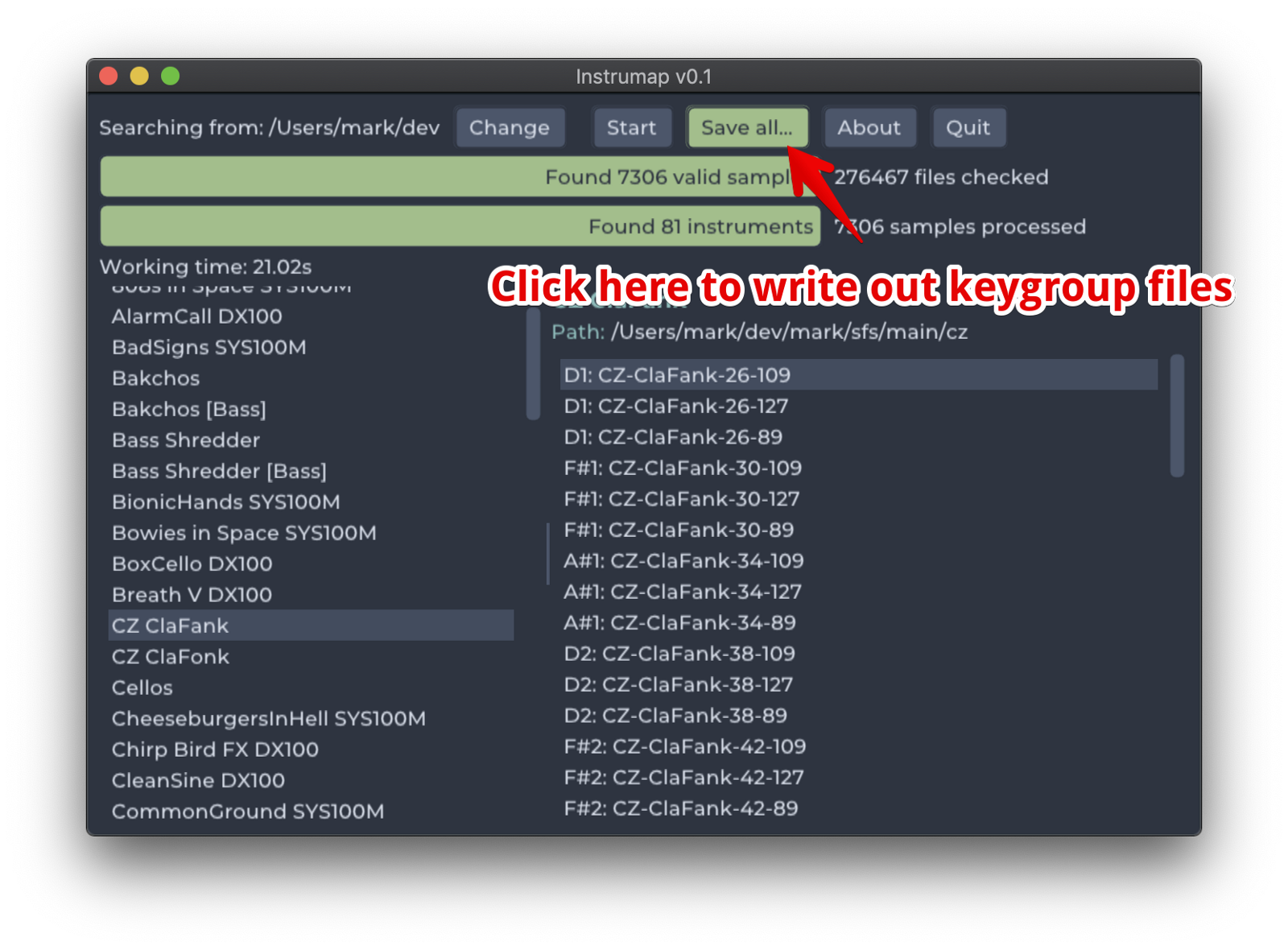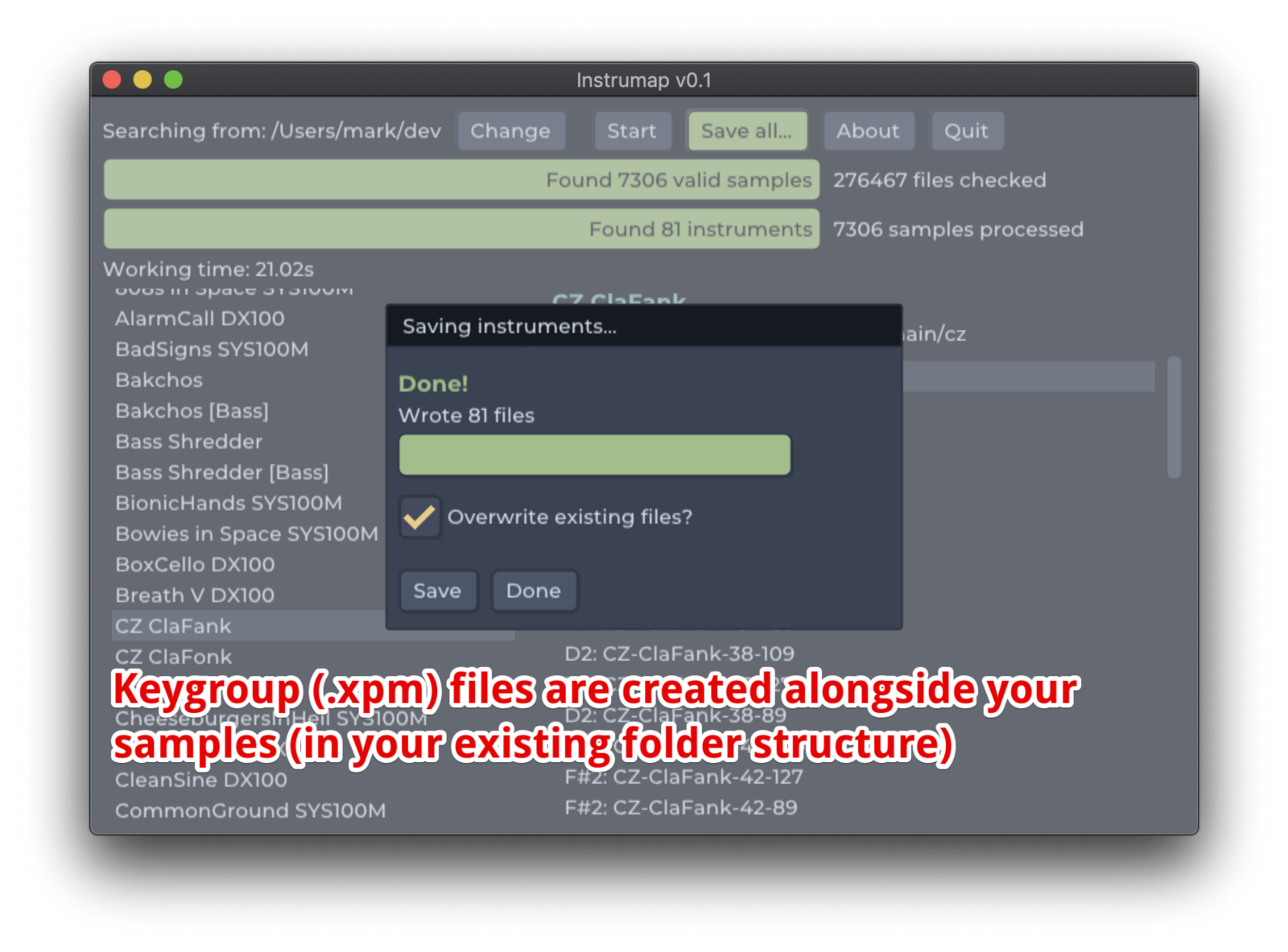Note: this is my original post introducing the idea for Instrumap. While the concept is the same Instrumap has grown a lot since I wrote this… If you’re new it might be better to read about Instrumap here.
Instrumap was born out of my desire to make better use of my sample library. I have lots of pitched samples - some of very high quality - which I’d like to use as keygroups with my Akai Force. Of course, building keygroups on the Force is completely possible but it’s slow and it can really kill my flow.
Off the top of my head I have all the packs from Samples from Mars, stuff from PureMagnetik, some Maschine expansions and a few other bits and pieces: all of which include collections of .wav files which represent detailed instrument samples. As an example, the DX100 from Mars contains particularly detailed multilayered samples across the keyboard. The Solid Bass alone has 252 separate samples (3 velocity layers from C1 to B7). I’m never going to spend my time setting that up manually: it could be done but it’s not fun.
It’s a real shame to have those nice samples there and never use them. This is why I’m creating Instrumap-it can detect the correct pitches for your samples, organise them into velocity layers and create keygroup files for your Force (or MPC).
Overview
Let’s take a look at what I’ve done so far…

Getting started with Instrumap
The user interface could use some polish but it’s mostly quite usable even now. You simply point it at a folder full of samples (or a folder full of folders of samples) and click start:

Instrumap uses file names and metadata inside the files to understand how they relate to each other. This typically takes a few seconds even for thousands of samples (I had to slow it down so I had time to capture screenshots). When it’s done you can review what it’s found and have it write out keygroup (.xpm) files.

The files are written into the same folders where you keep your samples. Your sample files themselves are never modified but you can now load them up as keygroup programs on a Force. I’m reasonably confident this will work on an MPC too or in the MPC software - I don’t have an MPC to test with but I will test with MPC Beats.

Keygroup (.xpm) files are created in your existing folder structure
The basic concept is quite simple and processing is usually very fast. Instrumap is not ready to release yet (it needs more testing) but the basic idea is already working quite well - well enough for me to use it as it is. I’m spending a bit more time to make it more reliable and usable so others get a chance to enjoy it.
Features
These things are already working well:
- Scan folders full of samples and create keygroups
- Create velocity layers based on sample names
- Cycle samples when velocity information is missing
- Read and set loop information
- Support MacOS (Catalina and newer) and Windows
These things are in progress [or coming soon]:
- Lots more testing…
- Tuning matching and grouping algorithms
- Window installer
- MacOS .dmg package + signed binary
Update: all of these and many more are done now
Instrumap won’t be free - it actually represents quite a lot of work - I intend to release it for a whopping $4 to start but that will likely increase in the future.
Read more about Instrumap.